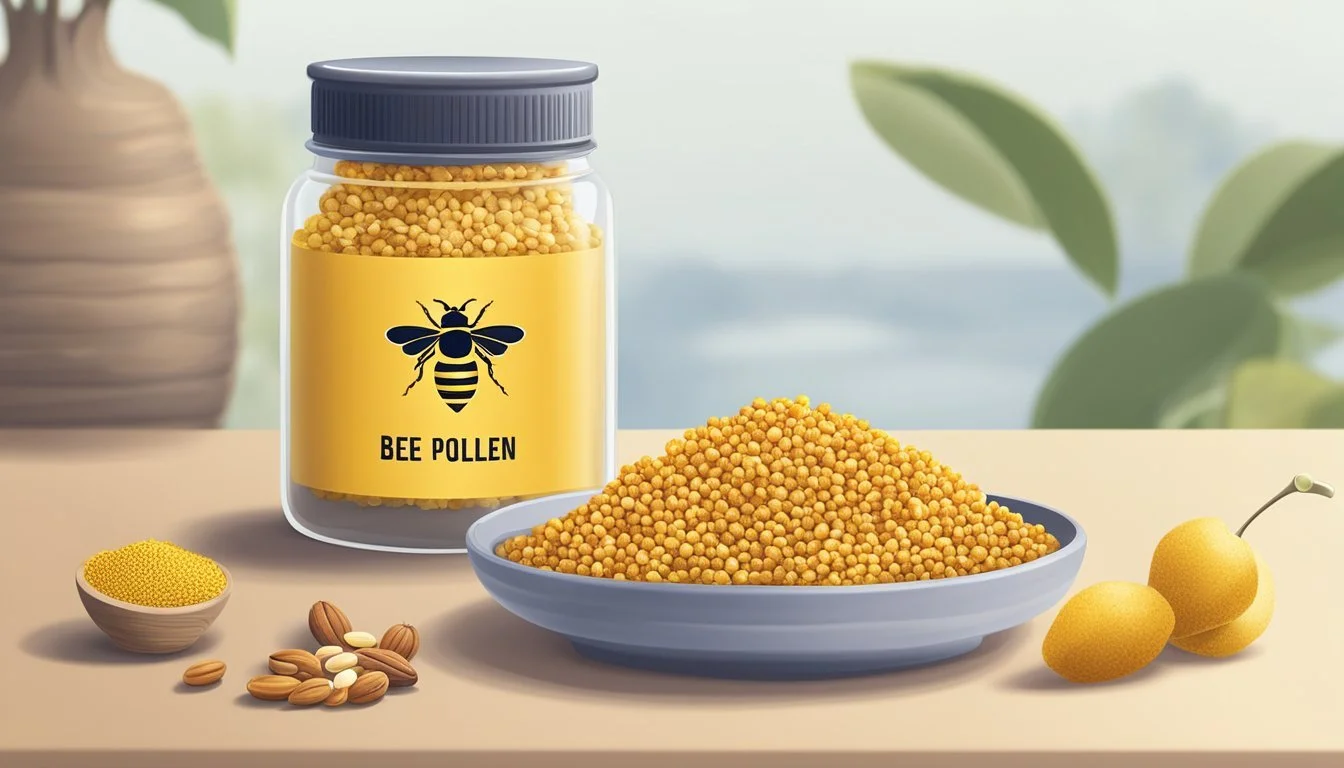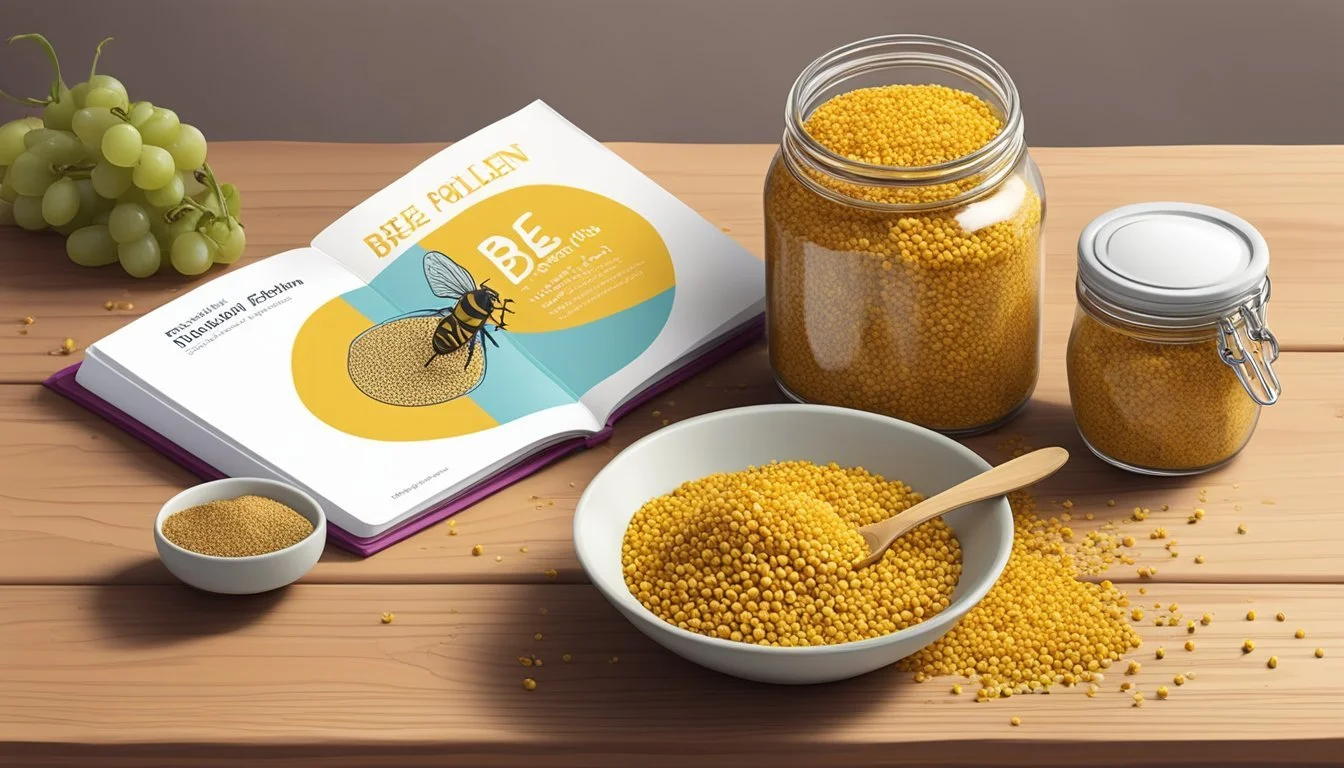Can Diabetics Eat Bee Pollen?
Exploring Benefits and Risks
Bee pollen is gaining attention as a superfood, packed with over 250 biological substances, including proteins, carbohydrates, fats, vitamins, minerals, enzymes, and antioxidants. For individuals with diabetes, managing sugar levels is vital, and there is growing interest in how natural supplements like bee pollen could fit into their regimen. Thankfully, diabetics can consume bee pollen, but consulting with a healthcare provider is essential to ensure it complements their specific health needs.
Bee pollen offers several potential health benefits that could appeal to diabetics. Its anti-inflammatory properties may help alleviate inflammation associated with diabetes. Rich in antioxidants, bee pollen might also support overall metabolic health, potentially aiding in better blood sugar control.
While the nutrient profile of bee pollen makes it a valuable dietary supplement, it's important for diabetics to monitor their intake carefully. Allergic reactions can occur, so starting with small doses under a physician's guidance is recommended. Integrating bee pollen into meals, such as by sprinkling it on yogurt or adding it to smoothies, can be a pleasant way to reap its benefits.
Understanding Bee Pollen
Bee pollen, often hailed for its dense nutritional profile, is collected by bees and consists of pollen, nectar, and bee secretions. This section explores its composition, how it’s collected and processed, and how it differs from other bee products.
Composition and Nutritional Profile
Bee pollen contains over 250 biological substances. Its key components include proteins, carbohydrates, and fats. Notably, it has a significant amount of vitamins and minerals, essential for various body functions.
It also boasts a comprehensive profile of amino acids and fatty acids. Among its nutrients are B-vitamins, vitamin C, calcium, and magnesium. Bee pollen is known for its antioxidant properties due to the presence of flavonoids and carotenoids.
Collection and Processing
Bees collect pollen from flowers, mix it with nectar and enzymes, and pack it into granules on their hind legs. These granules are brought back to the hive and stored as food for the colony.
Beekeepers use special traps at the hive entrance to collect bee pollen. The collected granules are then dried and packaged. This minimal processing ensures most of the nutrients are retained, making bee pollen a potent supplement.
Differences from Other Bee Products
Bee pollen differs from honey, propolis, and royal jelly. Honey is primarily a sugar-rich substance made from nectar, mainly comprising glucose and fructose. Propolis, or bee glue, is a resinous mixture with antibacterial properties. Royal jelly is a protein-rich secretion used to nurture the queen bee.
In contrast, bee pollen is the primary protein source for the hive. Its diverse nutrient content sets it apart, offering a comprehensive blend of proteins, vitamins, minerals, and antioxidants. To sum up, while all bee products have unique benefits, bee pollen stands out for its rich, varied nutritional profile.
Bee Pollen and Diabetes Management
Bee pollen shows promise in supporting diabetes management through its effects on blood sugar levels and its anti-inflammatory properties.
Impact on Blood Sugar Levels
Bee pollen has been studied for its potential to stabilize blood sugar levels. Research indicates that bee pollen may help lower blood glucose and improve insulin sensitivity. In a study with STZ-induced diabetic rats, a bee pollen suspension significantly increased serum insulin levels by nearly 91%. This increase suggests bee pollen might help mitigate the hyperglycemic state seen in diabetes.
Specific trials on humans recommend consuming 20-40 grams of bee pollen daily, taken before meals. This dosage appeared effective in sustaining lower blood glucose levels. It's essential for diabetics to consult healthcare providers before adding bee pollen to their regimen, especially if they are on blood thinners like Warfarin, as interactions might occur.
Bee Pollen's Anti-Inflammatory Effects
Inflammation plays a critical role in the progression of diabetes and its complications. Bee pollen possesses significant anti-inflammatory properties, which might help reduce systemic inflammation associated with diabetes. The presence of active enzymes, folic acid, vitamins (notably B vitamins), and minerals contribute to reducing inflammatory markers.
Several components in bee pollen, including flavonoids and phenolic acids, are known for their antioxidant effects. These antioxidants can help lower oxidative stress, which is typically higher in diabetic individuals. By reducing inflammation, bee pollen might aid in improving cholesterol levels and overall cardiovascular health, which are often concerns for diabetics.
Potential Health Benefits of Bee Pollen
Bee pollen is known for its rich nutritional profile, providing various health benefits. Its properties may support the body in multiple ways, including antioxidative effects, liver function enhancement, and immune system support.
Antioxidant Properties
Bee pollen is packed with antioxidants such as flavonoids, quercetin, and carotenoids. These compounds help combat oxidative stress by neutralizing free radicals.
Oxidative stress is linked to chronic diseases, including diabetes and cardiovascular diseases. Studies suggest the antioxidants in bee pollen may protect cells from damage and reduce inflammation. This can make bee pollen a valuable component in a diet aimed at disease prevention.
Additionally, bee pollen contains enzymes that aid in various biological processes. These enzymes contribute to its antioxidative effect, making it more effective in managing oxidative stress and promoting overall cellular health.
Supporting Liver Function
The liver plays a critical role in detoxifying the body. Research indicates that bee pollen may aid in supporting liver health through its detoxifying properties. It has been shown to enhance liver's ability to regenerate and repair itself.
Proteins and vitamins in bee pollen contribute to these beneficial effects. Animal studies suggest bee pollen can help improve liver function and protect against toxic substances.
By supporting liver health, bee pollen may enhance metabolism and energy levels. This can be particularly beneficial for individuals managing metabolic disorders, ensuring their liver processes nutrients more efficiently.
Boosting Immune System
Bee pollen's rich composition, including proteins, vitamins, and minerals, can help boost the immune system. It contains compounds that stimulate the immune response, enabling the body to better fight infections and diseases.
Research shows that bee pollen may modulate the immune system, enhancing its ability to respond to threats. It's believed to have medicinal properties that may strengthen immune defenses.
For diabetics, a strong immune system is crucial, as they can be more susceptible to infections. Hence, integrating bee pollen into their diet could offer an additional layer of immune support, promoting overall health and well-being.
Considerations for Safe Consumption
When consuming bee pollen, diabetics need to pay attention to potential allergic reactions, interactions with medications, and appropriate dosage.
Allergic Reactions and Side Effects
Bee pollen can trigger allergic reactions in some individuals. People allergic to pollen from plants such as ragweed may experience symptoms like itching, redness, and shortness of breath after consuming bee pollen.
Severe reactions might escalate to anaphylaxis, a life-threatening condition requiring immediate medical intervention. Other possible side effects include hives and swelling. Therefore, individuals trying bee pollen for the first time should start with a very small amount and monitor their response closely.
Interactions with Medications
Bee pollen may interact with certain medications. For instance, those taking Warfarin, a blood thinner, should be cautious, as bee pollen might influence its effectiveness. Individuals on steroids or other immune-suppressing drugs should also consult with their healthcare provider before adding bee pollen to their diet.
Combining bee pollen with Royal Jelly—a substance also produced by bees—might alter the effects of medications or exacerbate allergic responses. Thus, medical advice is crucial for safe consumption.
Recommended Dosage
The recommended dosage of bee pollen can vary. For general health maintenance, amounts ranging from 20-40 grams per day are commonly cited in therapeutic studies. However, diabetics should consider starting with smaller doses and gradually increasing as they assess tolerance.
It's best to consume bee pollen in consultation with a healthcare provider, especially for those managing diabetes. This gradual approach helps in avoiding any adverse effects and ensures safe integration into one’s dietary regimen.
Bee Pollen in Different Populations
Bee pollen holds potential benefits, but its effects can vary among different age groups and conditions. Assessing its use among children, pregnant or breastfeeding women, and the elderly with chronic conditions, remains critical for ensuring safe and effective consumption.
Bee Pollen for Children and Adolescents
Children and adolescents might be interested in bee pollen due to its rich nutrient profile, including vitamins and minerals. However, parents should approach this with caution. Bee pollen can cause allergic reactions, particularly in children who have pollen allergies.
Limited research is available on the safe amounts for children. It's recommended to consult a pediatrician before introducing bee pollen into a child's diet. Monitoring for any adverse reactions is essential for ensuring safety.
During Pregnancy and Breastfeeding
Pregnant and breastfeeding women should be particularly careful with bee pollen consumption. The potential benefits, such as boosting immunity due to its vitamins and minerals, might be appealing. However, there is insufficient research on its safety during pregnancy and breastfeeding.
Some concerns include allergic reactions and the effect on milk production. Health professionals often advise against taking supplements that are not well-studied in these populations. Expecting or breastfeeding mothers should seek medical advice before using bee pollen to avoid potential risks.
Elderly and Chronic Conditions
For the elderly, especially those with chronic conditions like diabetes or liver disease, bee pollen might offer some health benefits. It has been studied for its potential to lower blood glucose levels, which could be beneficial for diabetics.
However, the dosing and long-term effects are not well-established. Those with chronic conditions should approach bee pollen with caution and under medical supervision, as interactions with medications and side effects need thorough evaluation.
In summary:
Children: Consult a pediatrician, watch for allergies.
Pregnancy/Breastfeeding: Exercise caution, seek medical advice.
Elderly/Chronic Conditions: Monitor interaction with medications, consult healthcare providers.
Incorporating Bee Pollen into the Diet
Integrating bee pollen into a diabetic-friendly diet involves utilizing it in various culinary applications and exploring its potential as a dietary supplement for therapeutic purposes.
Culinary Uses
Bee pollen can be effortlessly added to everyday foods. When used in yogurt, it adds a subtle crunch and nutritional boost. Sprinkle a teaspoon of bee pollen granules on top of yogurt along with some berries for a refreshing snack. Another easy way is to blend bee pollen into smoothies, combining ingredients like frozen banana, almond milk, and berries to create a nutritious and delicious drink.
Bee pollen can also be mixed into salads. A small sprinkle of granules over a fresh green salad can enhance its flavors and nutritional profile. When adding bee pollen to drinks like milk or juice, it should be mixed thoroughly to ensure even distribution. For example, blend it into lukewarm milk with honey and citrus juices for an immune-boosting beverage.
Supplementation and Therapy
Bee pollen is available as a dietary supplement, commonly in granule and capsule forms. Diabetics can start with small amounts and monitor their blood sugar levels, adjusting the intake as necessary. Following the recommended dosage on the product label or consulting a healthcare professional is vital for safety.
In therapeutic practices, bee pollen is sometimes used to reduce allergic reactions. Consuming 20-40 grams per day has shown potential benefits, but it’s advisable to consult a doctor before incorporating it into the regimen. This caution ensures it aligns well with the individual's overall diabetes management plan and avoids possible adverse effects.
Bee pollen can be a beneficial addition to a diabetic diet when used thoughtfully and in moderation.






